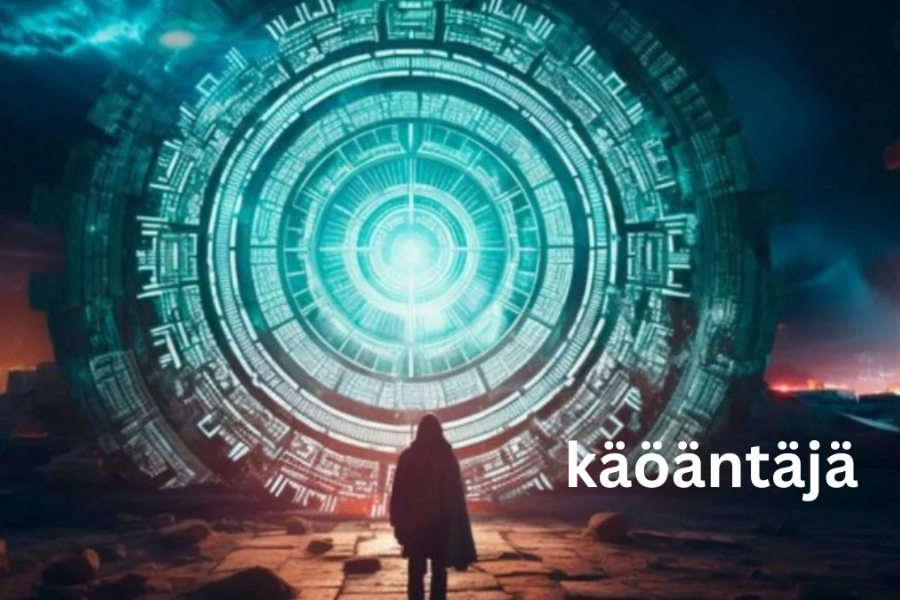Introduction
An interpreter, or käöäntäjä, plays a vital role in translating written text from one language to another, relying on their practical expertise. This profession is essential across various domains, such as business, law, medicine, academia, and specialized fields. The primary goal of an interpreter is to convey the original message’s meaning, tone, and nuances in a manner that is both accurate and culturally relevant for the target audience.
Translation transcends merely swapping words between languages; it demands a deep understanding of both the source and target languages. An interpreter must grasp the cultural context, idiomatic expressions, and subject matter to ensure the translation is both precise and meaningful. Whether interpreting a legal document, a medical report, or a literary piece, the interpreter must preserve the integrity of the original content while making it accessible and relevant to the new audience.
Skills and Qualifications of an Interpreter
Becoming a successful interpreter necessitates a blend of linguistic proficiency, cultural awareness, and specialized skills. Key qualifications and abilities essential for this profession include:
- Fluency in Multiple Languages: An interpreter must be proficient in at least two languages—one being the source language and the other the target language. This proficiency extends beyond basic conversational skills to a comprehensive understanding of grammar, vocabulary, and syntax.
- Cultural Competence: Recognizing cultural nuances is crucial in interpretation. Idiomatic expressions, cultural references, and societal norms can significantly impact the meaning of a text. A skilled interpreter must be aware of these cultural differences to avoid misunderstandings and ensure the translation resonates with the intended audience.
- Subject Matter Expertise: Many interpretation projects require specialized knowledge in areas such as law, medicine, technology, or literature. An interpreter with expertise in a specific field is better equipped to understand and accurately translate complex terminology and concepts.
- Attention to Detail: Accuracy is paramount in interpretation. An interpreter must pay meticulous attention to detail to ensure that the translated text faithfully reflects the original meaning and tone. This includes proofreading and editing to eliminate errors and inconsistencies.
- Research Skills: Interpreters often need to conduct research to understand unfamiliar terms or concepts. Strong research abilities are essential for finding accurate translations that are current and relevant to the content.
Challenges Faced by Interpreters
The role of a käöäntäjä comes with its unique set of challenges, including:
- Maintaining Accuracy: Interpreting complex or technical texts demands a high level of precision. Misinterpretations or mistakes can have serious repercussions, particularly in legal or medical translations.
- Balancing Literal and Contextual Translation: Striking a balance between a literal translation and capturing the context or tone of the original text can be challenging. Interpreters must make nuanced decisions to ensure the translation is both accurate and natural-sounding.
- Cultural Sensitivity: Navigating cultural differences can be difficult. Interpreters must be sensitive to cultural nuances and avoid translations that may be considered offensive or inappropriate in the target culture.
- Time Constraints: Interpreters often work under tight deadlines, which can add pressure to deliver high-quality work quickly. Time management and organizational skills are essential for handling multiple projects effectively.
The Significance of Translation in Global Communication
The work of a käöäntäjä is crucial in facilitating global communication and fostering mutual understanding. Translation enables businesses to enter new markets, supports international collaboration, and promotes the exchange of ideas and knowledge. It bridges gaps between diverse cultures and languages, contributing to a more interconnected and inclusive world.
FAQs:
1. What qualifications do I need to become a käöäntäjä?
To become an interpreter, you typically need fluency in at least two languages, cultural competence, and specialized knowledge in areas like law, medicine, or technology. Formal education in translation or interpretation is also beneficial.
2. What is the difference between an interpreter and a translator?
While both roles involve converting text from one language to another, interpreters primarily work with spoken language in real-time settings, whereas translators deal with written text and often have more time to consider their choices.
3. What skills are essential for a successful interpreter?
Key skills include linguistic fluency, cultural understanding, attention to detail, strong research capabilities, and the ability to work under pressure. Interpreters must also be good communicators and listeners.
4. What are the common challenges faced by interpreters?
Interpreters often deal with maintaining accuracy in complex texts, balancing literal and contextual translations, navigating cultural sensitivities, and working under tight deadlines.
5. In what settings do interpreters typically work?
Interpreters can be found in various environments, including courts, hospitals, business meetings, conferences, and educational institutions. They may also work in media or literary translation.
6. How does interpretation contribute to global communication?
Interpretation helps facilitate international dialogue, enabling businesses to enter new markets, promoting cross-cultural collaboration, and enhancing understanding and empathy among diverse populations.
Conclusion
The role of a käöäntäjä is pivotal in our increasingly interconnected world. As experts in bridging language and culture, interpreters not only convey messages accurately but also ensure that the underlying meanings and nuances are preserved. With their unique blend of language skills, cultural competence, and subject matter expertise, interpreters play a crucial role in various fields, from business and law to healthcare and academia.
The challenges they face, such as maintaining accuracy and navigating cultural differences, highlight the importance of their work in fostering effective communication and understanding across borders. As globalization continues to shape our interactions, the demand for skilled interpreters will only grow, emphasizing the vital contribution they make to facilitating dialogue and collaboration in our diverse world.

Leave a Reply